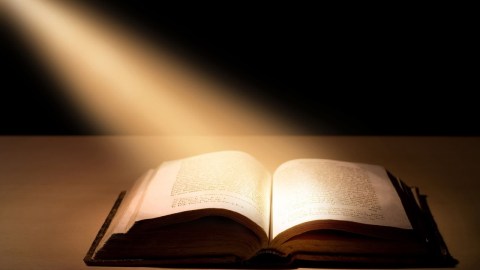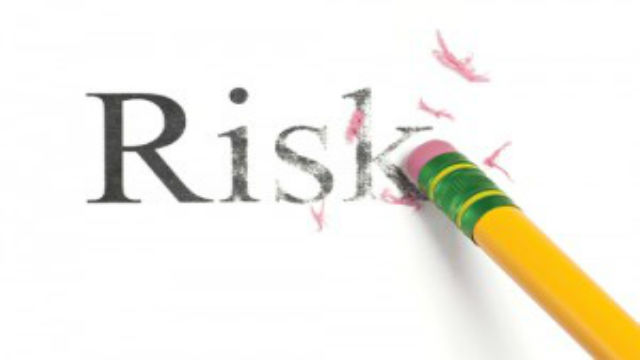No Single Book Is True

“All that stuff I was taught about evolution and embryology and the Big Bang Theory, all that is lies straight from the pit of Hell….what I’ve come to learn is that [the Bible is] the manufacturer’s handbook, is what I call it. It teaches us how to run our lives individually, how to run our families, how to run our churches. But it teaches us how to run all of public policy and everything in society. And that’s the reason as your congressman I hold the Holy Bible as being the major directions to me of how I vote in Washington, D.C., and I’ll continue to do that.”
—Rep. Paul Broun, chair of the panel on investigations and oversight, House Science Committee, Oct. 2012
“We too must write Bibles, to unite again the heavens and the earthly world. The secret of genius is to suffer no fiction to exist for us; to realize all that we know.” —Ralph Waldo Emerson
I’d like to raise a point that many fellow book lovers will consider obvious, but that becomes powerfully non-obvious on closer inspection. I’m not the first to raise it, but it bears repeating.
No single book is true: that is, no single book contains the truth, the whole truth, and nothing but the truth. Neither does any one chapter, verse, or quotation. Or this essay.
Reality is too robust to be contained between covers, or encoded within a finite pattern of abstract symbols. In what sense, even the most generously metaphorical, could a few hundred inked-up sheets of paper “contain” the past, present, and future of over 100 billion galaxies? Stephane Mallarmé said beautifully that “the world exists to end up in a book,” but that book has never been written, and the world goes on without it.
None of the ancient scriptures provides a comprehensive ethical guide to genetic engineering, or predicts what I’ll be having for dinner tomorrow (burrito). No one in Shakespeare’s galaxy of characters is quite like my friend Dave.
You might suggest that a book could be true without being comprehensively true. Someone could fill pages with trivial facts, such as “1 + 1 = 2,” and claim: “This book is true—or at least, not false.” But the Principia Mathematica is a sobering lesson in how impossible even this is. Russell and Whitehead’s masterwork took 379 pages to demonstrate the fact just mentioned, as part of a grand attempt to establish a set of mathematical axioms from which all lesser truths could be derived. Two decades later Kurt Gödel proved that every self-enclosed logical system, the Principia included, contains the seeds of its own incompleteness.
The universe doesn’t quite speak any human language, including the universal language. If math can’t know everything—can’t even fully know itself—what hope is there for messier symbolic systems?
Some religious leaders argue that worshipping texts encourages humility. In practice it encourages the opposite. It flatters the reader into feeling wiser than those who haven’t read The Text, or understood it, or believed it. It dupes the mind into thinking the better part of its education is complete: that it looks out from the center of the universe of knowledge, even if it hasn’t traveled to all the orbiting satellites and planets.
Here’s Emerson again: “It is a mischievous notion that we are come late into the world, that the world was finished a long time ago.” Yet this mischief (in the older, harsher sense) underpins everything from scriptural literalism to Constitutional originalism. Modern American conservatism was launched when William F. Buckley hilariously defined the conservative as “someone who stands athwart history, yelling Stop.” But history—including intellectual history—remains a speeding train, not a yacht steered safely into port after a little dicey weather.
The myth of the One True Book isn’t just a reactionary fantasy; it’s also a utopian dream. The belief that the sum of human knowledge can be hardbound between covers is cousin to the belief that it can be contained within library walls, or in the digital ether. Google’s stated mission “to organize the world’s information and make it universally accessible and useful”; one Harvard group’s recent proposal for a “universal library”—these reflect the same longing for comprehensive and definitive authority. I don’t mean to deny the utility and worth of such projects, only to point out that, as even Google concedes, “there’s always more information out there.” Not just “information,” either, but thought, insight, art—and more and more produced every millisecond. Even if copyright laws and the competitive marketplace magically disappeared, no institution or medium could ever gather this whole panoply under its banner.
OK: but is nothing sacred?
Books are sacred; no single book is. The same is true of scrolls, pamphlets, Word files, websites, and for that matter, artistic and musical compositions. The pursuit of knowledge is sacred, but no final capture is possible. At the same time, the attempt to fix knowledge in permanent form, however hopeless, is noble. I began Book Think with a snippet from a Borges essay called “On the Cult of Books”:
A book, any book, is for us a sacred object. Cervantes, who probably did not listen to everything that everyone said, read even “the torn scraps of paper in the streets.”
That distinction between speech and writing is crucial. The fact that no text can contain the whole truth doesn’t imply that all texts should be, like speech or Wikipedia, subject to endless revision. You can’t really make a statement until you’ve let go of your words and let them stand. Palimpsests are crucial to the advancement of knowledge, but so are finished texts—provided the reader doesn’t stop learning when the text stops teaching.
No book can hold all of the truth, but any book can catch a piece of it. That’s why no book deserves burning and any book deserves a chance, though many, in the end, deserve obscurity.
Some of the most valuable books contain luminous truths and howling falsehoods in equal measure. Water has never turned to wine, at least not literally; but on the other hand the race isn’t always to the swift, the battle to the strong, and so on. The scriptures that have survived have survived not because of the supremacy of their imaginary beings but because they contain good stories and good sense. (This is equally true of ordinary fiction, the one genre that cops to what it is.)
It’s easy to dismiss people like Rep. Paul Broun, quoted at the beginning of this essay, as wingnuts who take worship “too far.” Actually, they’re taking to its logical extreme the premise that a single document can be holy. If the Bible is the Word of God, what gives mortals the right to question it in any particular? If the U.S. Constitution is a work of divinely inspired genius, who are we to amend it when circumstances change? But to idolize a text in this way is to mistreat it—is, in fact, to profane it. Putting a fellow human being on a pedestal is an adolescent form of love, the underside of which is resentment; so too with a book, a constitution, or anything else. “I love America more than any country in the world,” James Baldwin wrote, “and, exactly for this reason, I insist on the right to criticize her perpetually.” In the same way, we honor our texts best not by bending over them in prayer but by scribbling quarrelsome notes in their margins.





